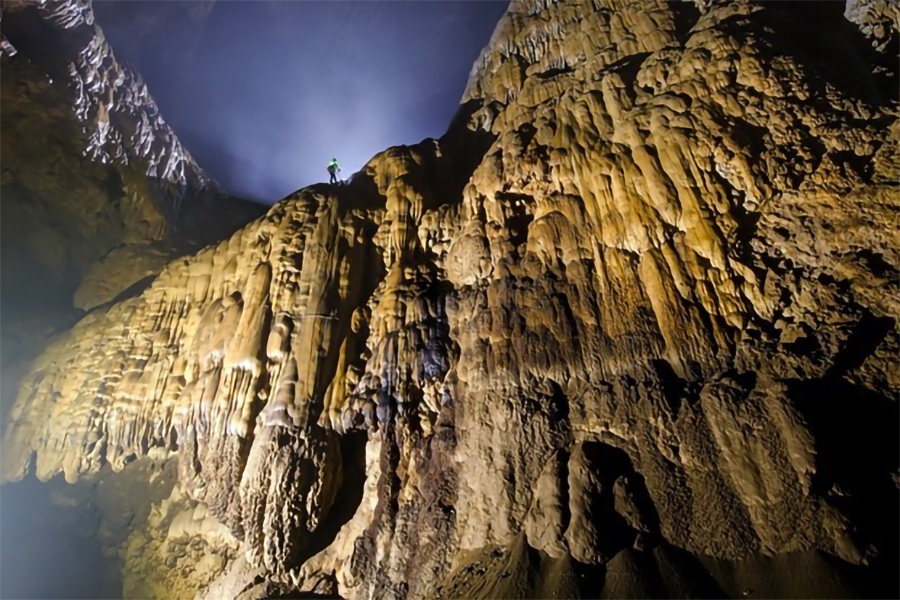Tourism on track in the world's largest cave: AFP
 |
| Inside the Son Doong (Source: Oxalis Adventures) |
Hanoi – France's news agency AFP on January 20 published an article on how tourism has been developed in and benefited local community around Vietnam’s Son Doong, which has been dubbed the world’s largest cave.
According to the article, located in the central province of Quang Binh’s Phong Nha-Ke Bang National Park – the World Heritage site, Son Doong was first discovered by local forager Ho Khanh in 1991, when he stumbled upon an opening in a limestone cliff and heard the sounds of a river deep inside. But after returning home through the thick surrounding jungle, Khanh forgot where the hidden entrance lay, and it stayed lost for another two decades. When he eventually led a team of British experts back there in 2009, the team found it had the largest cross-section of any cave anywhere on the planet.
It is large enough to house the 40-floor skyscrapers of an entire New York City block, according to adventure tour company Oxalis, which guides visitors into the caves.
When Son Doong was opened to tourists four years later, the lives of hundreds of locals changed forever, it said, adding that they soon became porters and guides and opened their homes to guests wanting a bed for the night.
With only one company given permission to operate in each of the key caves, there is an incentive to protect them, with numbers of visitors limited and prices kept high.
The article said as the COVID-19 swept the globe, locals catering to international travellers have struggled. But Son Doong has weathered the crisis fairly well overall, thanks to a boost in visitors among Vietnam's fast-growing middle class.
The high-end tourism model of the caves – which provides around 500 jobs for the local community – has begun to attract interest in other areas, it quoted Oxalis as saying.
What the stars mean:
★ Poor ★ ★ Promising ★★★ Good ★★★★ Very good ★★★★★ Exceptional
Related Contents
Latest News
More News
- Visa data highlights five key payment and travel trends in Vietnam for 2026 (January 14, 2026 | 10:42)
- New Year tourism receipts top $40m in key cities (January 06, 2026 | 08:36)
- Vietnamese passport climbs on global ranking (December 16, 2025 | 08:00)
- Manila becomes a new check-in destination for Vietnamese youth (December 11, 2025 | 18:07)
- Vietjet launches mega year-end ticket promotion (December 10, 2025 | 11:33)
- Dalat leads Vietnam’s 2025 search trends (December 09, 2025 | 13:44)
- Vietnam welcomes record wave of international visitors (December 09, 2025 | 13:43)
- Vietjet launches daily Manila flights to celebrate year-end festive peak season (December 05, 2025 | 13:47)
- The destinations powering Vietnam’s festive season travel demand (December 04, 2025 | 18:33)
- Vietnam named among the world’s most exciting winter destinations (December 04, 2025 | 15:10)

 Tag:
Tag:



















 Mobile Version
Mobile Version